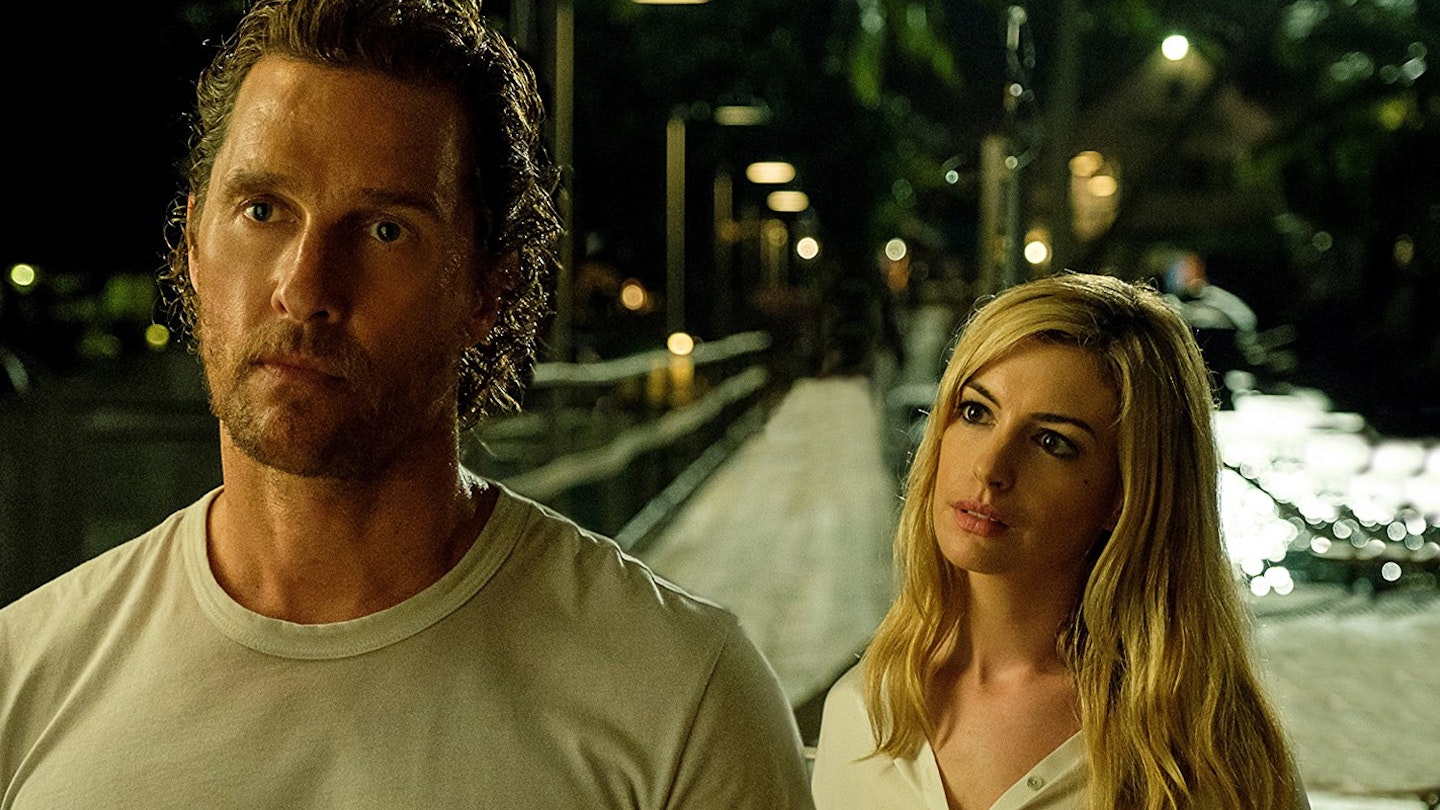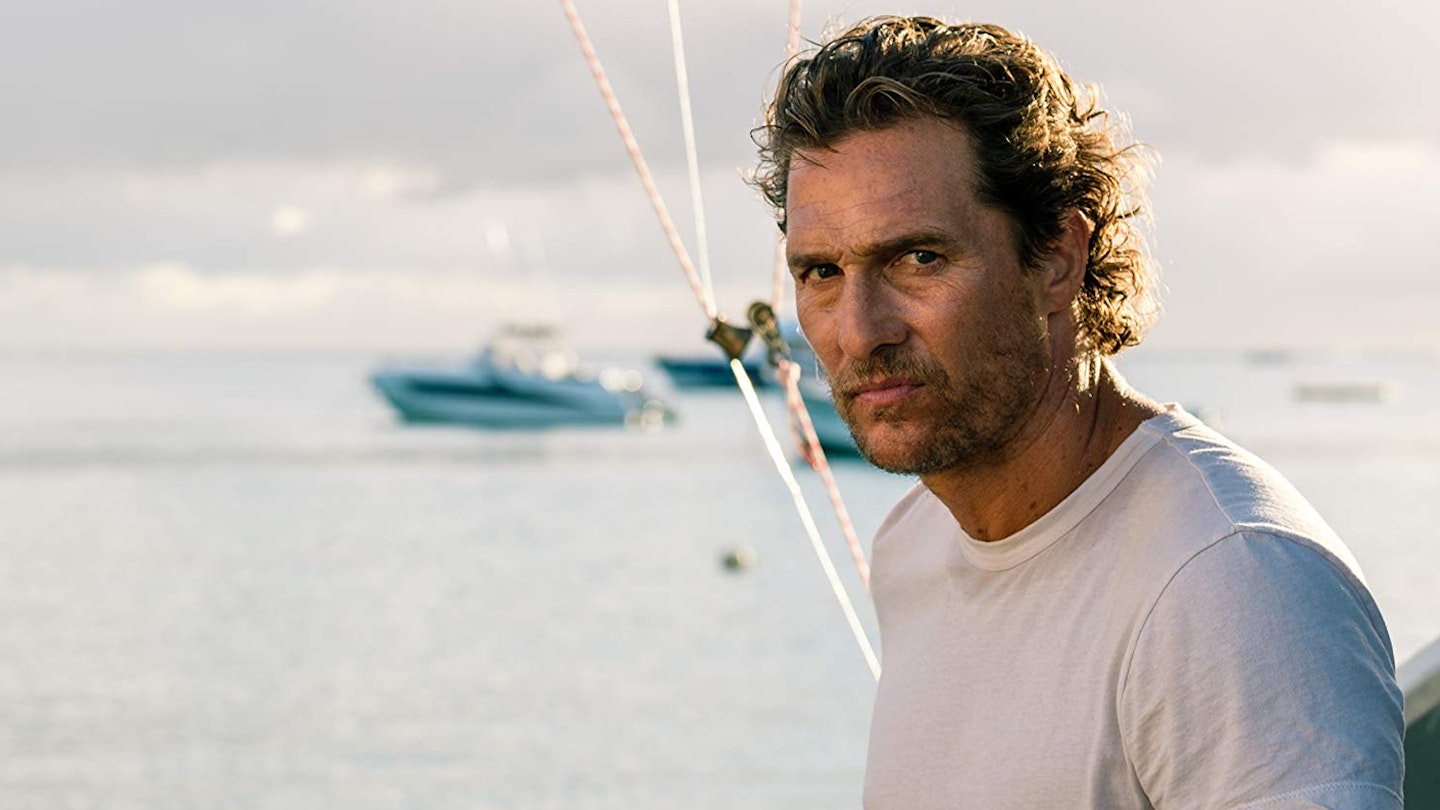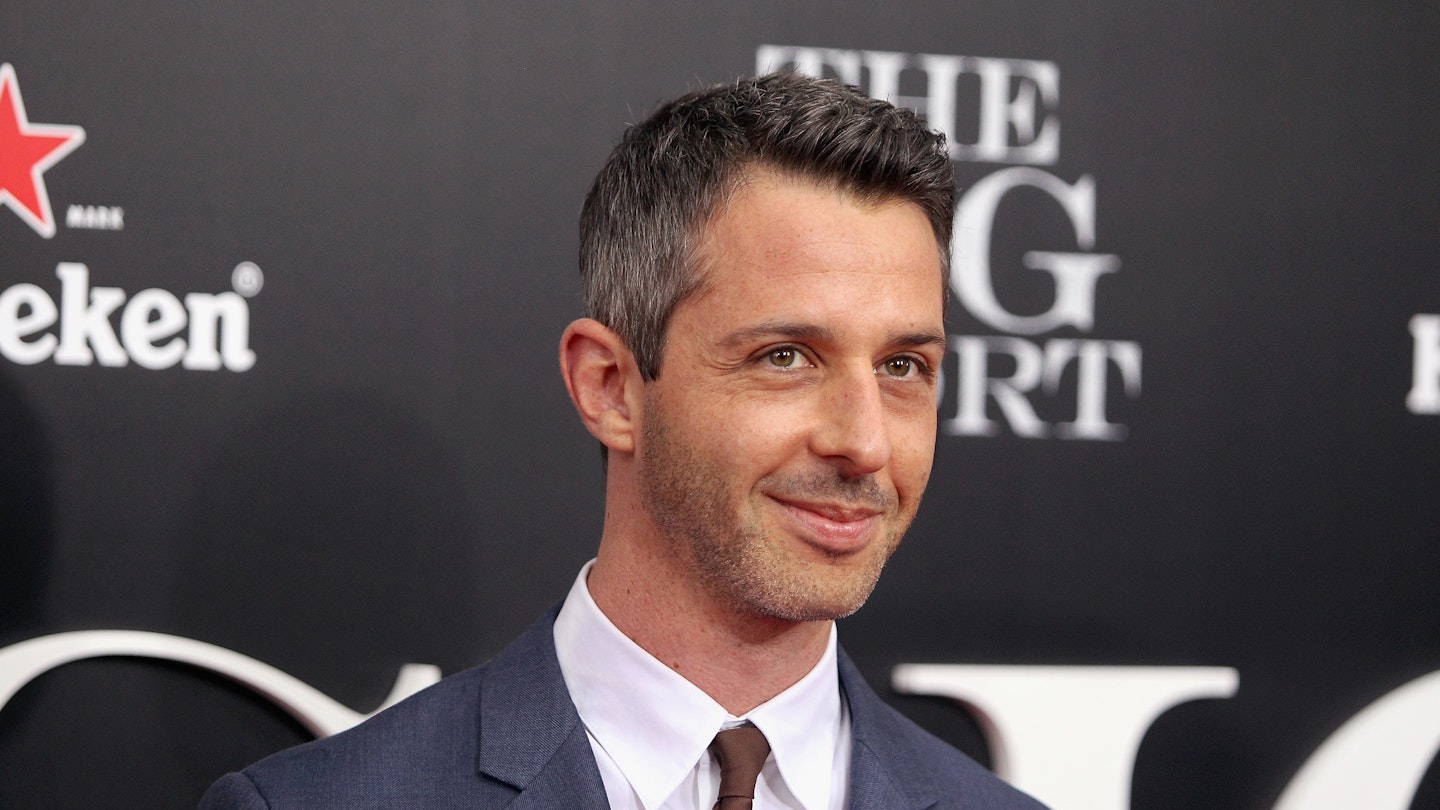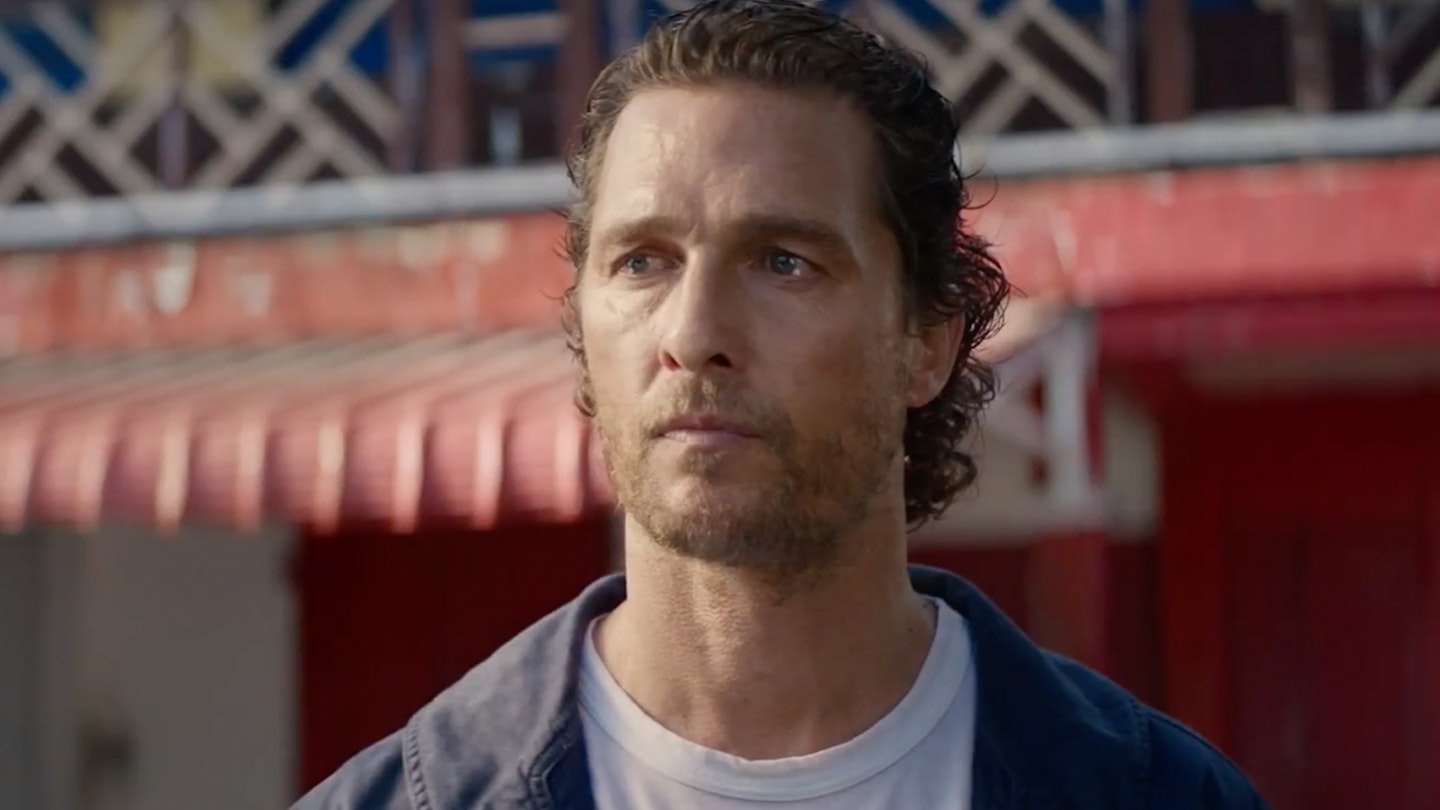Written and directed by Steven Knight (the talent behind Cronenberg’s Eastern Promises screenplay and the writer-director of Locke), Serenity is a film of two equally disappointing halves. The first looks to revamp the tropical crime thriller, a heady cocktail of sun, sex, subterfuge and sailing, in a modern milieu. The second takes the premise into a whole different unforeseen zone of madness while still playing on familiar noir themes of fate and destiny. Either way, the film misfires on practically all levels, wasting an A-list cast, some intriguing ideas and big ambition on a story that is deeply flawed, and over-sincere but under-cooked.

Set on the the sleepy sun-kissed island of Plymouth Island, the action centres on McConaughey’s Baker Dill, the moniker joining Texas Chainsaw Massacre: The Next Generation’s Vilmer Slaughter and Contact’s Palmer Joss in The Most Ridiculous McConaughey Character Name stakes. Dill is an Iraq vet turned skipper of small fishing boat The Serenity and has a Captain A-hab/Moby Dick relationship with tuna. He also has an on/off thing with Constance (Diane Lane), and his course seems pretty set until his ex-wife and mother of his son, Karen (Hathaway, all blonde hair, smoky eyes and cigarette holding-as-acting) turns up with a proposition: take her violent multi-millionaire husband Frank (Clarke) on a fishing trip, get him sozzled and toss him to the sharks for $10 million and the prospect of getting back with her.
The writing is tin-eared and the performances feel bizarrely off.
So far, so Double Indemnity in espadrilles. But there are strange quirks. Dill is haunted by memories of his dead son and is chased around by a mysterious fishing equipment salesman (Jeremy Strong). What is weirder, given the talent involved, is the tone; the writing is tin-eared and the performances from such such stellar talents as McConaughey, Hathaway, Clarke and Djimon Hounsou (as Dill’s loyal first mate) feel bizarrely off, stylised without riffing on a style. Yet slowly, the film begins to reveal its true colours in a Shyamalan/Nolan-esque twist that reframes the story but neither redeems the ‘bad’ quality of the first half or manages to answer all the questions raised by the sharp turn. There are interesting ideas around the role of storytelling and the nature of free will, but Serenity never manages to engage or address them.
If you are being kind, the pretty, sun-drenched Mauritius locations might send you running to Trivago and Knight at least goes for broke, trying something bold and adventurous rather than playing it safe. But the end result has the unique quality of being simultaneously silly yet sombre, a waste of on-screen and behind-the-scenes talent that perhaps raises the biggest question of all: how did so many great people come together to make this drivel?






